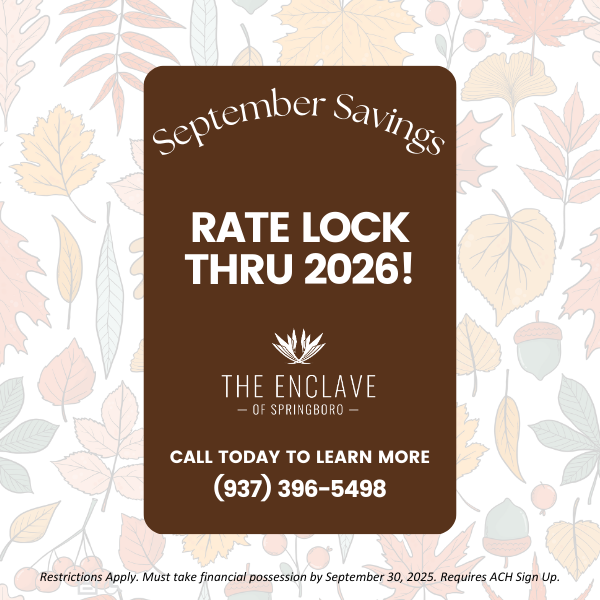When a loved one begins to show signs of memory impairment, the road ahead can seem daunting. Family caregivers often face decisions about the right path for the care and comfort of their loved ones.
Among these choices is memory care. 6 advantages of a memory care community for a loved one include:
- A safe and secure environment
- Personalized care
- Medication management
- High staff-to-resident ratio
- Engagement and cognitive stimulation
- Respite for family caregivers
- A Safe & Secure Environment
Memory care communities are designed with safety and security. They incorporate features that address the unique needs of older adults with memory loss, such as secured exits to prevent wandering and alert systems for emergencies.
A memory care community with a secure setting provides family members peace of mind, knowing their loved ones have protection and support. The emphasis on safety isn’t just about physical well-being. The structured environment also contributes to emotional security, reducing anxiety and confusion for residents.
Familiar routines, personalized care, and attentive staff play a significant role in creating a comforting atmosphere. This stability is crucial for older adults with memory issues, helping them feel more grounded and less overwhelmed by changes in their surroundings.
- Personalized Care
One of the advantages of memory care communities is tailored care plans. These communities focus on delivering personalized support that aligns with each resident’s unique needs and preferences. This approach to care offers compassion and respect for individual identities.
Round-the-clock support is a fundamental component of personalized care. Trained staff members in memory care respond promptly and appropriately to the diverse challenges that arise when caring for older adults with dementia.
- Medication Management
Memory care communities provide thorough medication management. This includes administering medications on time, monitoring their effectiveness, and adjusting dosages as needed. This level of medication management can be challenging for family caregivers to maintain at home, making memory care communities a valuable option for those with loved ones who require multiple medications.
- High Staff-to-Resident Ratio
Memory care communities have a high staff-to-resident ratio. Each resident receives the attention and care they deserve, fostering strong relationships between staff and residents. These relationships built on trust and understanding help to create a nurturing environment where loved ones feel valued and respected.
- Engagement & Cognitive Stimulation
Memory care communities address the challenges of social isolation in older adults with memory problems by offering opportunities for them to engage in activities that promote social interaction and cognitive stimulation. These communities understand the importance of keeping residents active and connected to maintain their well-being.
Thoughtfully designed programs and activities in memory care cater to various interests and abilities, encouraging participation in group events, hobbies, and creative endeavors. Whether it’s a music therapy session, an art class, or a simple group walk in the garden, these activities provide meaningful ways for residents to connect with others and express themselves.
- Respite for Family Caregivers
Caring for a loved one with dementia can be both rewarding and exhausting. Memory care communities offer much-needed relief for family caregivers, allowing them to step back from their caregiving responsibilities if needed while knowing their loved ones are in capable hands. This respite can be invaluable, allowing caregivers to recharge and maintain their own well-being.
The professional support provided by memory care communities also alleviates the emotional burden that often accompanies caregiving. Families can take comfort in knowing that their loved ones are receiving specialized care from skilled professionals who understand the complexities of dementia. This support network extends beyond the residents, offering guidance and resources to families as they navigate their loved ones’ journeys.
Selecting the Ideal Memory Care Community
Choosing the right memory care community is a significant decision that requires careful consideration of various factors. Location, cost, and the overall environment are important aspects to evaluate to make sure the chosen community aligns with the needs and preferences of a loved one.
Visiting potential communities can help in making an informed decision. During memory care community tours, families can observe the community, interact with staff, and gauge the atmosphere. For clarity and aid in making care decisions, family members can ask questions about staff qualifications, resident-to-staff ratios, and available programs.
In addition to these practical considerations, family members can gain more insight into a memory care community by assessing the community’s philosophy and approach to care. A community focusing on person-centered care, respect, and dignity will likely be a better fit for individuals with memory loss.
The Value of Memory Care
Memory care communities offer a compassionate and supportive environment for older adults with dementia, addressing their physical and emotional needs. From safety features and personalized care plans to opportunities for social engagement and respite for caregivers, these communities provide a comprehensive approach to care that benefits older adults with memory impairment and their families.
For family caregivers, choosing a memory care community can be a positive step toward their loved one’s well-being. If you’re considering a memory care community for your loved one, contact The Enclave of Springboro to learn more about our memory care program and receive guidance through every step of the transition process.











